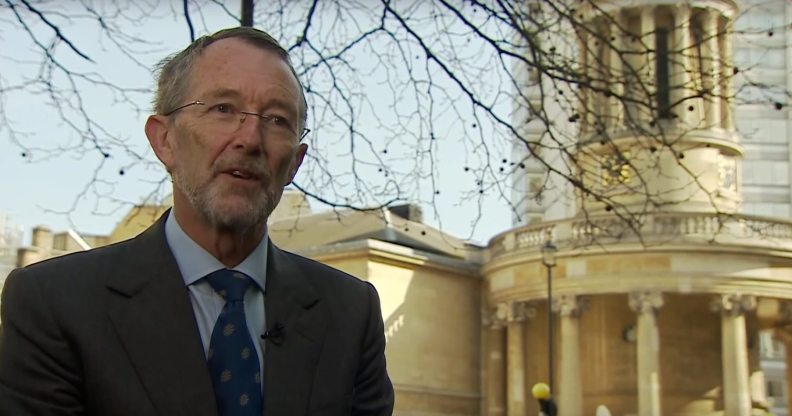Christian magistrate stuck off for anti-LGBT+ bias loses court appeal against sacking: ‘He is not the victim’

Former magistrate Richard Page. (Christian Legal Centre)
A former family court magistrate who claimed children were better off with straight parents has been told by the Court of Appeal that his firing was “lawful and inevitable”.
In 2014, Christian magistrate Richard Page objected to an adoption application by a same-sex couple on the basis that he believed a child would be better off with straight parents. He was suspended in 2015 over his comments.
However, the following year he was struck off by the Judicial Conduct Investigations Office (JCIO) after he decided to appear on BBC Breakfast to repeat his anti-LGBT+ views.
Page said he expressed in the case “what I considered best for the child, and my feeling was therefore that it would be better if it was a man and a woman who were the adopted parents”.
The JCIO struck Page off for being “biased and prejudiced against single-sex adopters”, and since then the former magistrate has been fighting a legal battle, insisted he was discriminated against for his “Christian views”.
The Employment Appeal Tribunal (EAT) dismissed his legal challenge in 2019.
He then took his case to the Court of Appeal, supported by the Christian Legal Centre, an anti-LGBT+ lobbying group that frequently represents people sacked over homophobic views.
According to the Law Society Gazette, on Friday (26 February) the Court of Appeal ruled against Richard Page.
Lord justice Nicholas Underhill, who gave the lead judgment, said Page was dismissed because he declared that he would make decisions based on his own beliefs rather than the law, and added that this was “entirely lawful and involved no breach of his human rights”.
Lord justice Peter Jackson said that Page had shown a “profound misunderstanding of the responsibilities of a judge as a public servant”. He added that the fact that the former magistrate had continued to insist he was being discriminated against for being a Christ was “further confirmation that his dismissal from the magistracy was both lawful and inevitable”.
In his analysis, Jackson wrote: “In this case [Page] is not a victim.
“He was not dismissed for complaining about his treatment but because he had shown himself incapable of honouring his undertaking… to act as a magistrate in a way that was free from bias.”
Andrea Williams, chief executive of Christian Concern and the Christian Legal Centre, said the ruling showed that society was “on the road to totalitarianism”, and added: “It seems that certain jobs in the future will not be open to Christians or other believers or traditional faiths unless they are prepared to shut up and toe the party line.”
Williams said Christian Concern and the Christian Legal Centre would be supporting Page to take his case to the Supreme Court.

